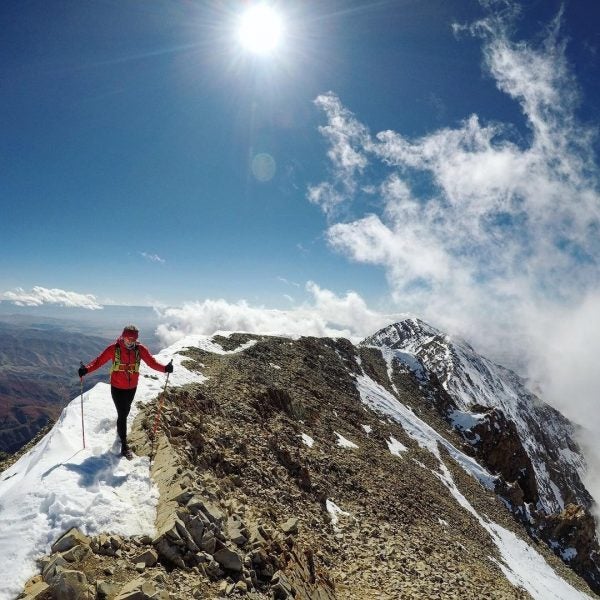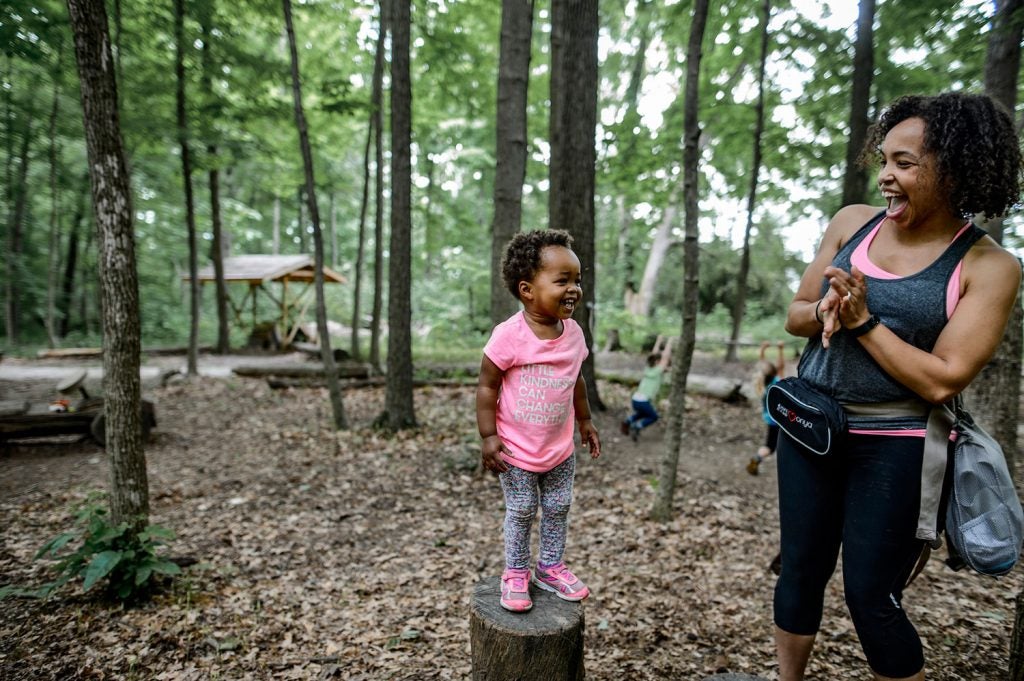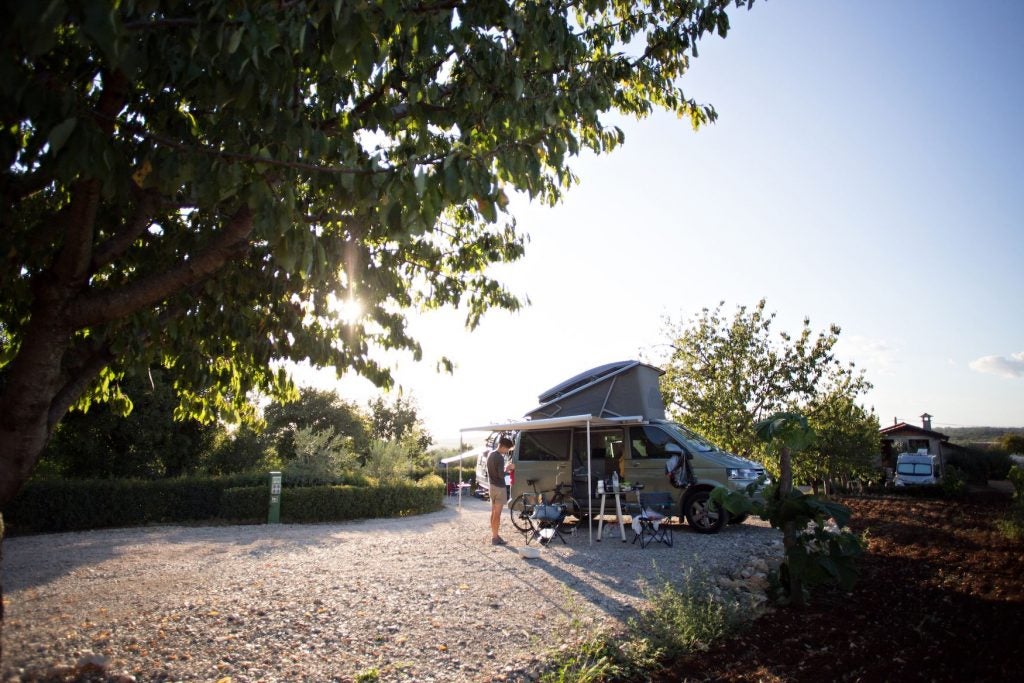There are a few things you should know about Caroline Gleich: she’s fierce, passionate, and an all-around mountain athlete. When she’s not summiting peaks in the Wasatch Mountains of Utah and beyond, she’s advocating for causes like Bears Ears, clean air, and equal pay.
You should also know that she’s dealt with an unacceptable amount of internet trolls and cyberbullying.
In the first two minutes of her short film “Follow Through,” viewers hear a nasty voicemail from an unknown caller: “Maybe you can teach me a little bit about, like how to be a silver spooned spoiled b*tch, with like, an awesome Instagram feed. Because that’s what I f***ing want also.”
But she pushes on, despite trolls and haters. Recently, Caroline Gleich became the first woman to successfully ski all 90 lines of Andrew Mclean’s “Chuting Gallery,” a compilation of challenging and downright terrifying lines among the Wasatch Mountain Range, chronicled in her film.
Caroline Gleich: Athlete, Activist, Awesome
I had the chance to talk to Caroline about her travels, challenge descents, and the way that she seems to always maintain composure while constantly pushing herself to the limit.
The Dyrt: You are no stranger to bullying and internet trolls, yet you persist with sharing your passion for the outdoors. What advice would you give to other women and girls when dealing with hurtful comments from others?
Caroline Gleich: It’s unfortunate that over three quarters of women under 30 have experienced some form of harassment online. It took me a long time to understand that when people say bad things about you on the internet, whether directly or indirectly, it isn’t about you, it’s about them. I found out after years of a cyberbullies telling me I had a “silver spoon,” that the person who was accusing me was the one who actually had a trust fund. Often, the thing that someone finds offensive about you is something they can’t accept about themselves.
[bctt tweet=”My philosophy on risk management is intertwined in this premise of respecting the feminine qualities within. We have to bring compassion, openness, transparency, and vulnerability into how we manage risk in the mountains.” username=”carolinegleich”]
Online harassment of women is another symptom of the rampant misogyny and sexism in our culture whose efforts are to silence certain voices in the community. To speak up and write about online abuse is an act of bravery and courage. Now, more than ever, women’s voices need to be heard, and it’s important that we don’t give in and give up. Take those negative comments and publish them with the username of the abuser. Take the worst thing someone has said and wear it like a badge of honor. Online hate speech is like an infected wound on society. Only once we open up the bandage and clean it out will it ever heal. Don’t sweep it under the rug. That took me a long time to learn.
You mentioned in a recent interview that you have to accept a certain amount of uncertainty when heading into alpine environments. How do you handle that in remote areas? How do you know when it’s time to turn around?
I’ve seen how quickly a fun day in the mountains can turn into a deadly one. In seconds, someone can slip and fall to their death, or an avalanche can bury someone irretrievably deep. In remote areas, or even areas without good cell phone reception, I tone it down a notch. I have a “three strikes” rule for decision making in the mountains: anytime there are 3 things I don’t like, I turn around or choose a less risky objective. They could be environmental – weather – wind – warming, it could be jet lag or fatigue, it could be partner dynamics. If I need to, I can just make up a strike.
Assessing risk is a big part of any outdoor adventure whether you’re backpacking, hiking, climbing, or skiing. What does that risk assessment look like for you? Is it a checklist? Gut feeling?
Trusting my intuition is a big part of assessing risk. I’ve seen how quickly friends can get injured or die in the mountains. I always want to be able to turn around if something doesn’t feel right. I also believe that partner dynamics play a huge role in managing risk. I study up on accident reports by reading “Accidents in North American Mountaineering” by the American Alpine Club and other articles.
Often, you see highly experienced people make a series of bad decisions. When one thing goes wrong in the mountains, I believe it’s important to slow down and not make hasty decisions that can spiral into more mistakes. I also find it important to be careful who I go into the mountains with. I choose to surround myself with people who are transparent and not afraid of vulnerability. I always try to put all my fears on the table and never hold anything back– it could be the most minor detail that changes a decision.
Once in the mountains, I try to let go of my ego and realize the mountain will always be there. I make a conscious effort to not let the pressure of filming, shooting photos, or sponsorship change my decision making. Many of my friends have been killed while they were on sponsor-funded trips. Sometimes, I don’t know how I even get out of bed, because there is a side of me that is incredibly fearful and sad from losing so many friends. But when I’m climbing up a mountain to ski down, I know in my heart that it is what I’m meant to be doing. Sometimes, you can go try something even if you feel scared and take it one step at a time.
Caroline Gleich’s Personal Connection
How do you deal with the fear of mother nature?
On a philosophical level, I don’t like to equate “nature” and “mother.” I don’t like to attach a gender to the environment because I think about how we treat our mothers. Most of us expect our mothers to always be there, and we can take whatever we want from them. Our society wants to control and conquer women and the feminine, while we worship the father, the son, and the holy spirit. Equating nature and mother can be a justification to take and not give back. Our society tends to hold the masculine higher than the feminine.
[bctt tweet=”Mountains, like women and nature, are not something to be conquered.” username=”carolinegleich”]
My philosophy on risk management is intertwined in this premise of respecting the feminine qualities within. We have to bring compassion, openness, transparency, and vulnerability into how we manage risk in the mountains. We have to learn to recognize and honor the feminine qualities in mountain leadership. In the mountains, we tend to think of strong leadership as someone who doesn’t express emotion, who doesn’t cry or admit to being afraid. Fear is not something to overcome. I believe we need to put all our fears on the table in order to manage risk. We have to listen to one another and create an atmosphere where everyone can speak up and express their concerns.
Mountains, like women and nature, are not something to be conquered. For me, mountains are my dream, my love, and my passion. There are days when I am grateful to pass through and reach a summit, and days when that is not a possibility. It’s a journey of growth, togetherness, and belonging. I go to have a deeper relationship with myself and with other people.
You continue to summit and ski down very difficult mountains even though you lost two loved ones to avalanches. Why?
I’ve lost over about a dozen friends to avalanches, falls, or other accidents in my dozen years of being a professional skier. Liz and Martin were the two I was closest to, but each of their deaths has affected me in a profound way. I always carry the fear with me. It’s not something I can ever overcome. I use it to make informed decisions, and go in fully aware of the risks. I don’t sugarcoat anything. I always get rescue insurance when I travel. I have health insurance. This year, one of my big goals was to make sure I wouldn’t be a burden to my family or friends if I died, so I purchased life insurance and made a living will. It’s a small step towards being more responsible in how I approach the mountains.
I don’t spend all my time in the alpine. I do a lot of cross-training away from snowy, avalanche prone terrain. I also take a lot of classes to continue improving and learning. I don’t believe avalanches are random catastrophes. Snow science gives us the information to forecast avalanches. There are weather factors you can’t control, but you can control the type of terrain you venture into.
Advocacy in the Outdoors
You’ve mentioned that passion plays a big role in affecting policy and change. How can outdoor enthusiasts take small steps and use their passion for good?
One of the best things outdoor enthusiasts can do to affect change is share their personal experiences on public land. Show up and speak at public meetings, at the city, county, state, and national levels. Learn how to craft a public comment–it’s very similar to storytelling on Instagram or writing for a magazine.
I would highly encourage people to be curious about their local and protected lands at the grassroots level. Get involved with local advocacy groups. A great resource is Patagonia Action Works – it’s a digital platform that connects citizens with grassroots, environmental non-profits.
Find those local, organizations and make contact! Read their email newsletters, attend events. Do your own research. Remember that you don’t need to be an athlete or celebrity to make your voice heard. Every voice matters. Do not underestimate the importance of coming to the table to proactively use government as a tool for problem solving.
It’s clear from your Instagram feed that you take your platform seriously. From equal pay for professional athletes to policy issues like immigration. Has advocacy always played a role in your ski career, or has it developed recently?
I’ve always been devoted to work that tries to make the world a better place. It’s in my DNA – my mom and dad are both doctors. Growing up, they were devoted to caring for patients through their practice and research. My mom was one of few women in her graduating medical school class and always encouraged me to speak up for what I believe in. I went to Catholic school until I was 15 and she helped me write a petition to allow girls to wear pants instead of skirts. When I was in junior high, the school changed the policy.
My dad always encouraged me as well. He took me on my first backpacking trip, and taught me how to poo in the woods (which was super awkward as a 10 year old). He took me skiing and encouraged me to be “the animal” – fierce and aggressive and to make my voice heard.
He’s a deep thinker and always talking about social and environmental issues. They both taught me how to think critically and see both sides of an argument. Even though they wanted me to focus on my education rather than athletics, I want to make them proud and do something that has a positive effect on society. I couldn’t be an athlete without trying to have a bigger effect. It wouldn’t fly in my family.
High Altitudes
What goes into setting up camp at high altitude in the middle of winter?
To be honest, I haven’t done much camping at high altitude in the middle of winter. My preference is to do light and fast, done in a day missions. Right now, I’m planning a September expedition to climb and ski Cho Oyu, the sixth highest peak in the world. That will involve a month of camping at high altitudes. I’ll get back to you with how that goes!
Speaking of Cho Oyu, you’ve set some really big goals for yourself this year; a 40 mile ultra-marathon, 70 mile bike race, and summiting Cho Oyu. How do you deal with the pressure of accomplishing such major goals? Is it fun?
I don’t always deal so well with the pressure of setting big goals. In many ways, I am an incredibly insecure person and full of self-doubt. I frequently second guess myself. Sometimes when I watch videos of myself, I don’t feel like the person in them is me. One of the big challenges of training for these types of events is that you have to say no to many other opportunities that come up. Sometimes I don’t know how I get out of bed in the morning.
It’s more fun to be flexible and to go on adventures when people ask. Following a training plan is exhausting and I often go to bed very early. I get FOMO. Many times, I do my training runs by myself so I can listen to my body and go at my own pace. It can be isolating. But then, when you achieve something you thought was impossible, it makes it all worth it.
There are highs and lows along the way. It’s easy to get distracted – to look at Instagram and wish I was doing something else. But then I go back to the goals I set for the year, or for longer, and remind myself what I’m doing. It’s worth it–but it’s not as glamorous as it seems. It can be lonely and painful and exhausting.
How do you choose your objectives?
I try to meditate on what it is in my heart–what I truly want to do, and not set goals for anyone except myself. It’s easy to give into the pressures of family, social media, or sponsorship. Of course, it’s a balance of everything. Making a career as an athlete has not been an easy path, but I don’t like to do the easy thing. I’d rather pick a challenge.
[bctt tweet=”I would highly encourage people to be curious about their local and protected lands at the grassroots level. ” username=”carolinegleich”]
Life in The Limelight
Can you tell us about the not-so-glamorous side of being a professional athlete?
Ahhh, where to begin. I’m so grateful to make my living doing this. But it’s challenging. As my business grows, I keep learning more and more. There’s no health insurance, 401k, or other benefits. It’s a balance of things that are personally important and doing what’s commercially viable.
Documenting adventures is an entirely different challenge as well. Powder days are usually spent waiting for photographers or videographers. There are very early mornings and late nights. But when I’m climbing up to ski down a mountain, I know this is what I’m meant to do.
[bctt tweet=”I frequently second guess myself. Sometimes when I watch videos of myself, I don’t feel like the person in them is me.” username=”carolinegleich”]
What kind of pressure comes from living your life in front of 147,000 followers?
On one hand, I’m very grateful for the opportunity social media has provided to tell my story in my own way. On the other hand, the trolling, bullying, cyberstalking, and harassment has changed my personality. At times, it’s made me wary of people I meet. It’s exhausting. It puts a lot of pressure on me. And social media itself is changing and evolving rapidly.
When Instagram first started, I loved the simplicity of the medium. Now that it’s more commercialized, I feel it’s losing soul. Sometimes, I feel a pressure to keep growing – to keep increasing my following, but the algorithm and what it reacts to doesn’t represent what I want to show. I don’t ever want to objectify myself to gain more followers.
It can be tempting to want to display more skin to gain followers, but I want to show a different view of womanhood– I want to show strength and beauty. I don’t want to be just an image, I want to maintain a strong voice. I don’t always want to show the most curated images. I’d rather show real life, with some beautiful photos at sunrise or sunset, and some with harsh midday light (because sometimes a girl needs to sleep in).
I want to take a deep dive on topics that are important to me. One of my biggest fears is being superficial. Sure, people might have started following me because they thought I was a cute skier girl, and I guess that’s ok. But I want to take them on a journey that will change the way they think and feel and engage with the world.
What do you think needs to change in the outdoor industry in order to make women feel they are equal to men?
Women in leadership positions. Learning and acceptance and appreciation for the feminine qualities. Implicit bias and bystander intervention training. We have a long ways to go.
The Dyrt is the only camping app with all of the public and private campgrounds, RV parks, and free camping locations in the United States. Download now for iOS and Android.Popular Articles:
Articles on The Dyrt Magazine may contain links to affiliate websites. The Dyrt receives an affiliate commission for any purchases made by using such links at no additional cost to you the consumer.



